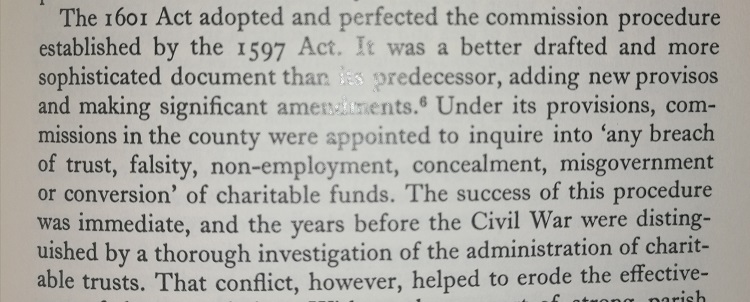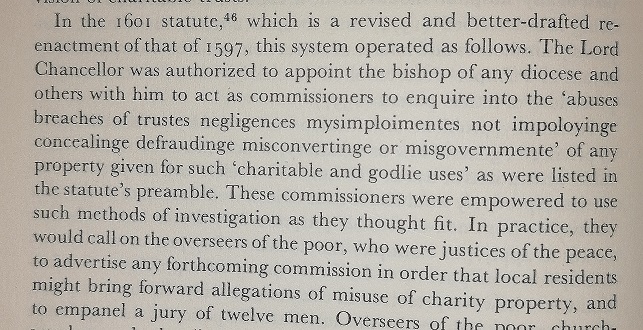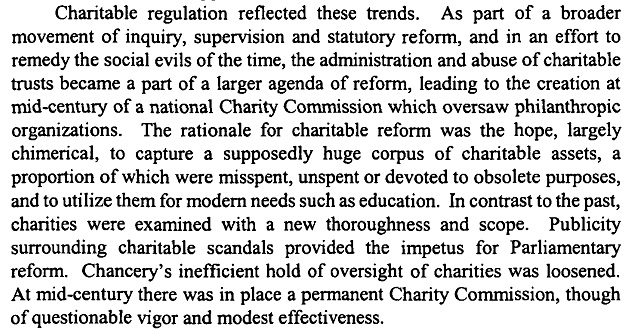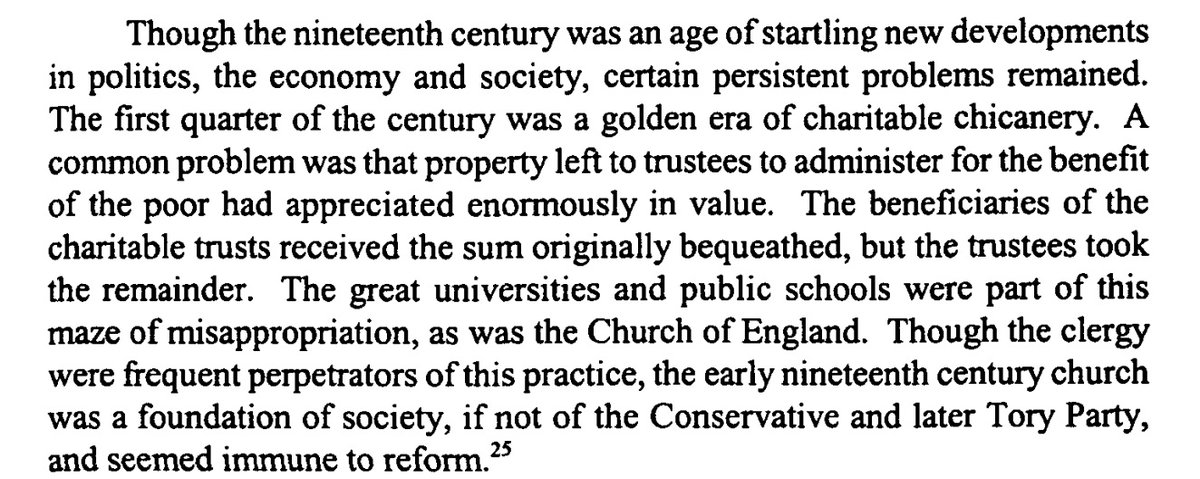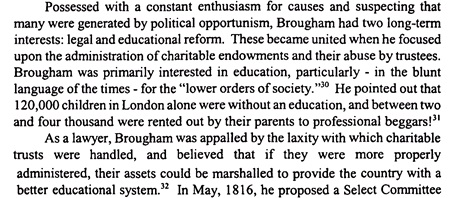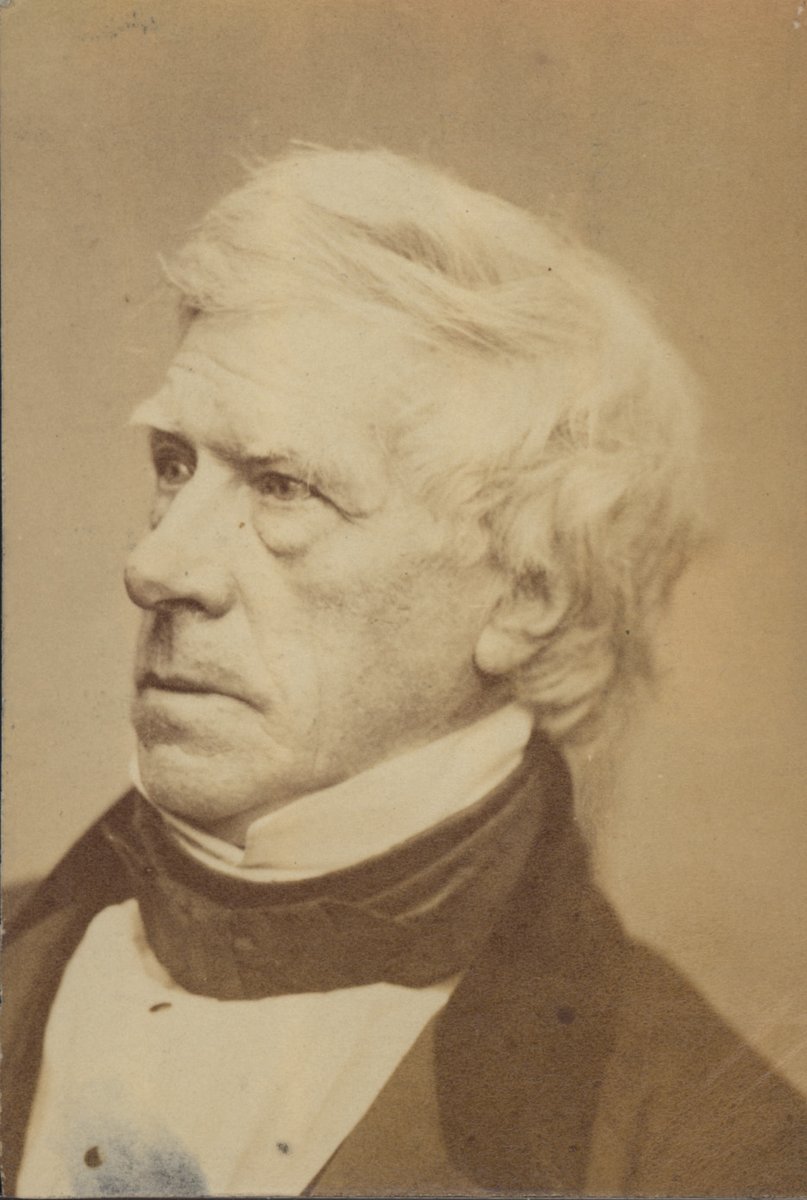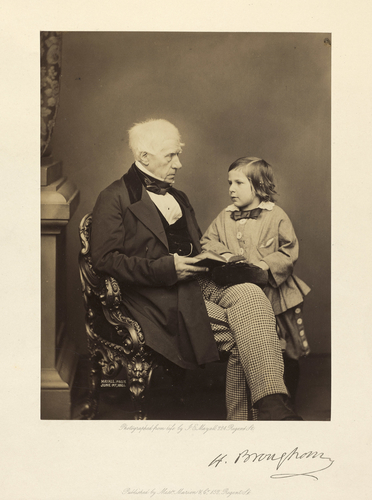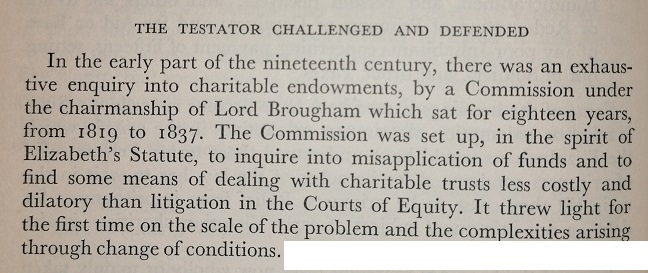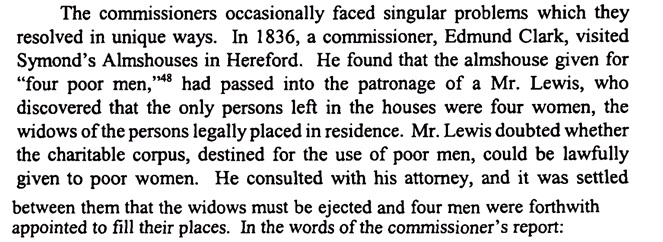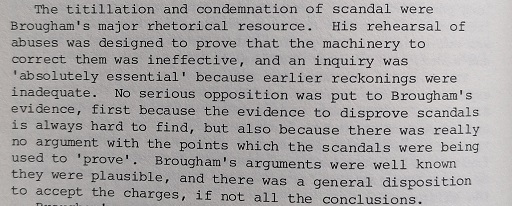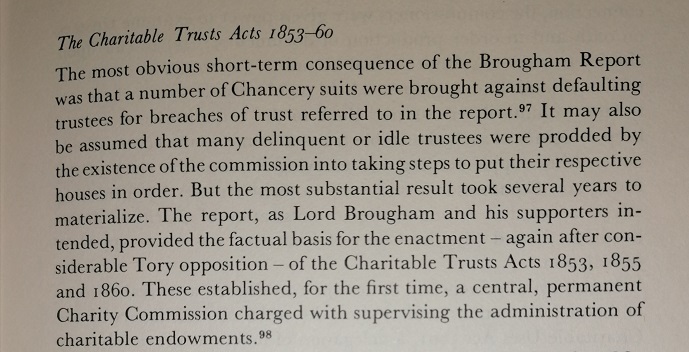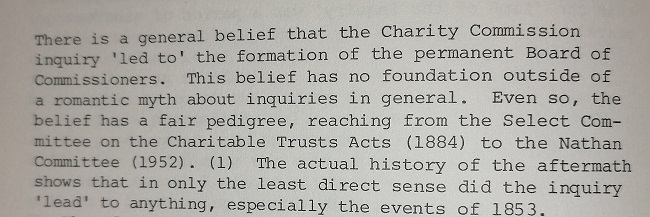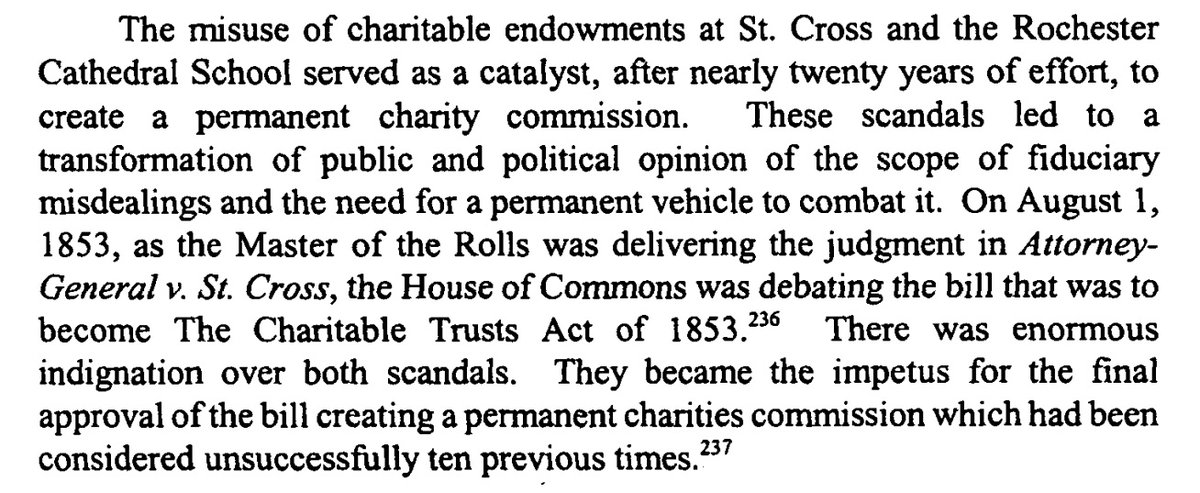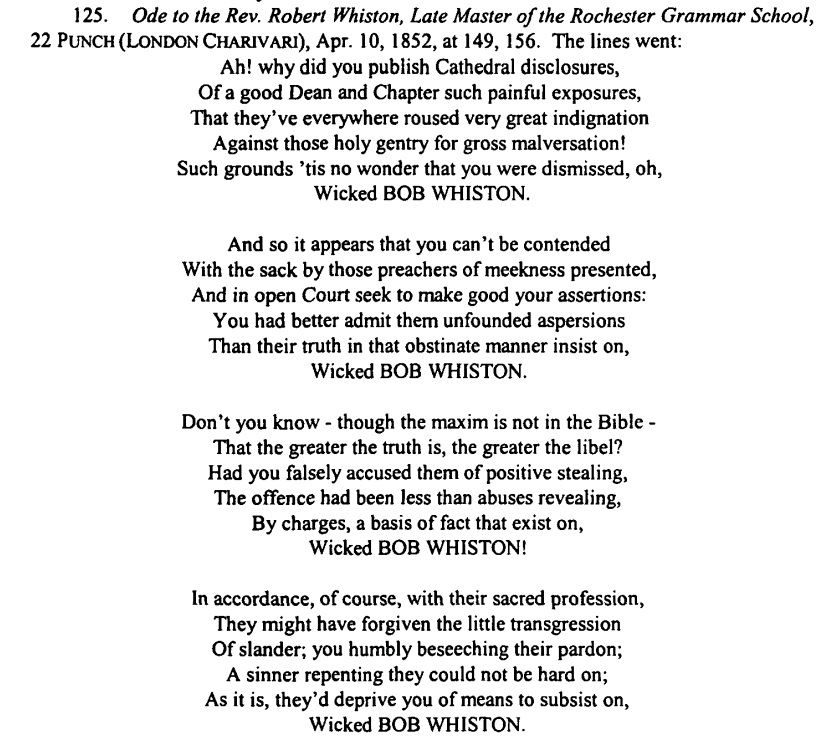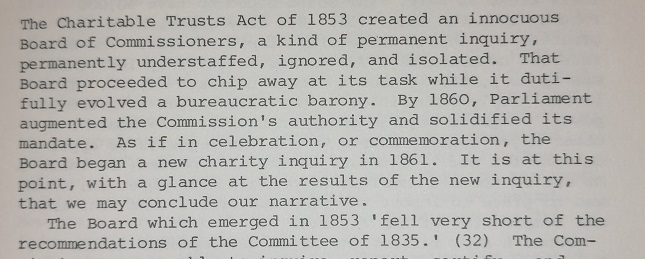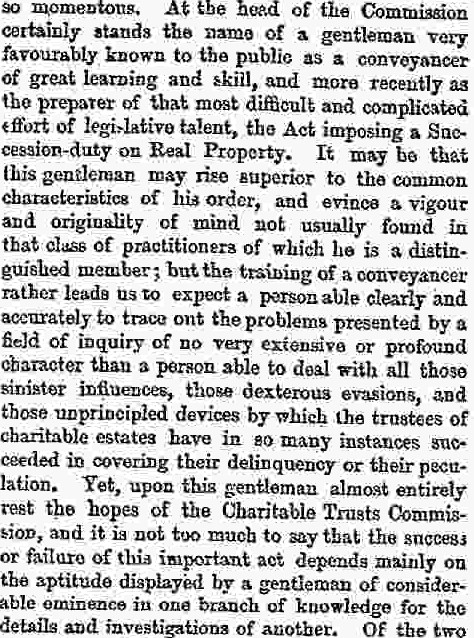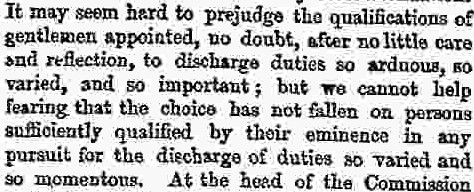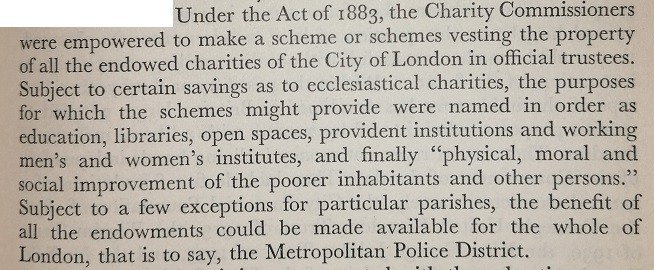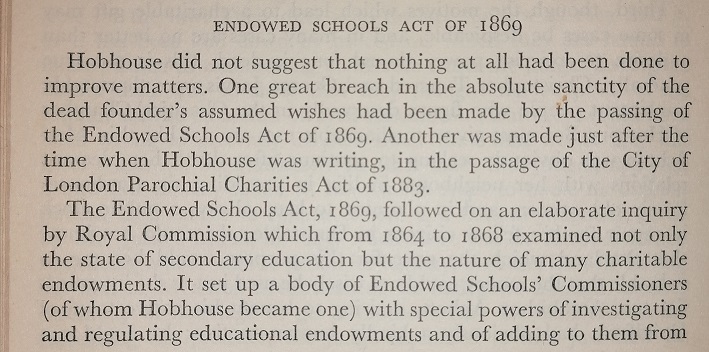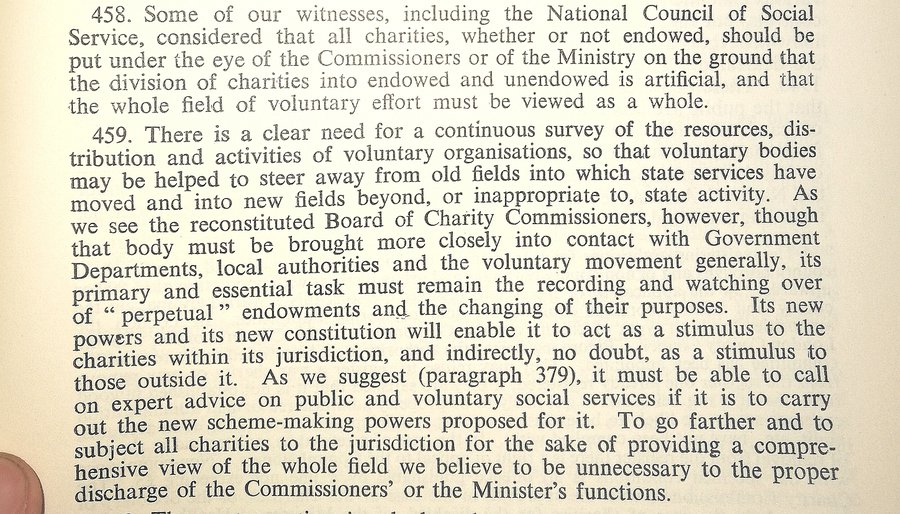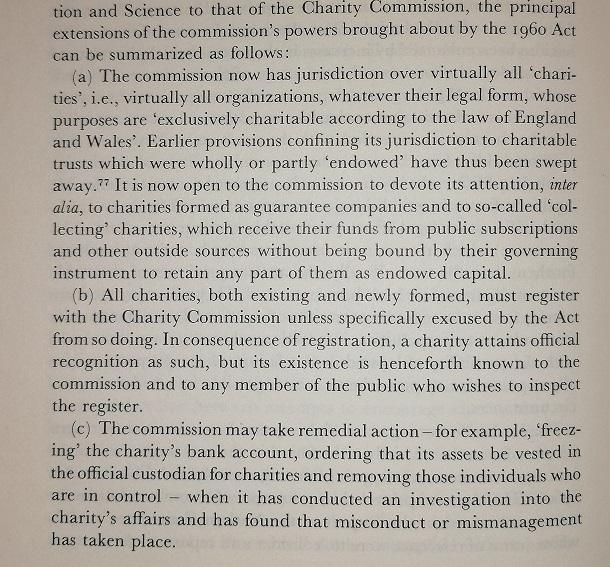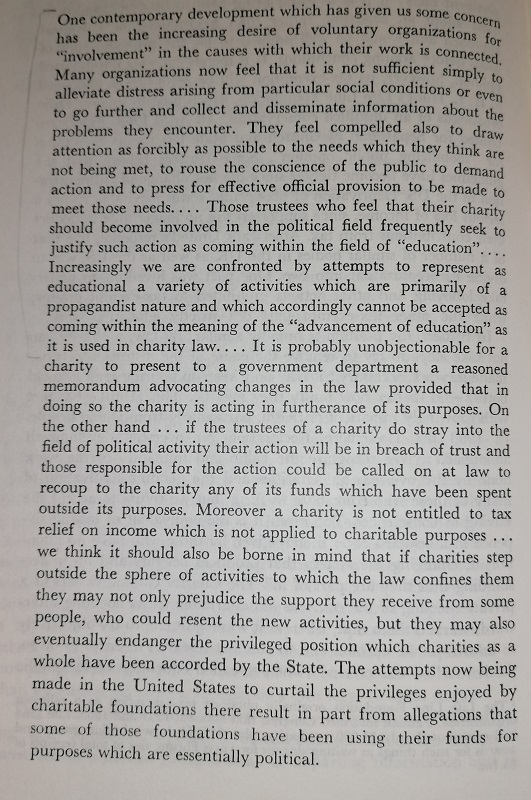The Charity Commission’s recent efforts to win friends and influence people <ahem> got me thinking about why we have a stand-alone charity regulator here in the UK.
So here’s a wee THREAD on the history of the CC. 1/
So here’s a wee THREAD on the history of the CC. 1/
But before we get into the details, here’s a few key headlines in case you get lost (or can’t be bothered with the whole thing). 2/
Firstly- when talking about “The Charity Commission” or “Charity Commissioners” historically we need to be careful, as it can refer to at least 3 separate things. 3/
1. The system established under the 1601 Statute of Elizabeth for investigating misuses of charitable trusts
2. The Royal Commission established by Henry Brougham which ran from 1819-1837.
3. The permanent Charity Commission, est in 1853 and still going today. 4/
2. The Royal Commission established by Henry Brougham which ran from 1819-1837.
3. The permanent Charity Commission, est in 1853 and still going today. 4/
Secondly, for the vast majority of the time the Charity Commission hasn’t been concerned with the sort of “charities” we mean today.
Rather it was solely to do with charitable trusts. Jurisdiction over non-endowed charities only came in 1960. 5/
Rather it was solely to do with charitable trusts. Jurisdiction over non-endowed charities only came in 1960. 5/
Thirdly, historically the Charity Commission was seen as quite radical & anti-establishment: challenging vested interests (especially endowments, and therefore the Church, public schools, universities etc). 6/
Right. Down to the history.
The 1601 Statute of Charitable Uses not only established the first legal definition of charity (well, sort of), it also introduced the concept of a Charity Commission. 7/
The 1601 Statute of Charitable Uses not only established the first legal definition of charity (well, sort of), it also introduced the concept of a Charity Commission. 7/
These “Charity Commissions” were locally convened, temporary groups that were given the power to investigate supposed misuses of charitable endowments. 8/
These kept going for a long time, although by the mid C17th people were increasingly relying on the alternative Chancery (i.e. court) route to address charitable abuses. 9/
The early C19th saw a new age of reform, and charity law and concerns about endowments were suddenly very much back on the menu. 10/
It probably didn’t help that abuses of endowments genuinely were pretty rife at this point.
Fishman even claims it was a “golden era of charitable chicanery”. 11/
Fishman even claims it was a “golden era of charitable chicanery”. 11/
The key figure is Henry Brougham (1st Baron Brougham & Vaux)- a Whig politician & reformer whose educational crusade brought charitable endowments firmly into his sight. 12/
Brougham successfully lobbied for a Parliamentary Select Committee to be formed- at first to explore London poverty, but by 1819 this expanded to charitable endowments and became a Royal Commission that ran for the next 19 years. 14/
This sounds pretty dry, but the on-the-ground reality could be more interesting. E.g. this anecdote about some intransigent widows refusing to give up their perfectly nice almshouse, thanks very much...15/
Brougham was canny in his rhetorical tactics- amplifying a small number of charity scandals in order to make the case for his Commission.
Which obviously has no modern relevance.
Nope, none at all that I can see... 16/
Which obviously has no modern relevance.
Nope, none at all that I can see... 16/
Now, opinion is divided on the extent to which Brougham’s Charity Commission did or didn’t lead to the permanent Charity Commission in 1853.
Some think it did: 17/
Some think it did: 17/
The Brougham Commission probably did set some precedent, but there were other factors too. Notably a few major public scandals centred on charity endowments. 19/
One of these concerned Rochester Grammar School in Kent.
The details are complex, but basically a disgruntled churchman named Robert Whiston turned whistle-blower on a practice of creaming off money from long-standing endowments. 20/
The details are complex, but basically a disgruntled churchman named Robert Whiston turned whistle-blower on a practice of creaming off money from long-standing endowments. 20/
His battle with Rochester Cathedral and the Church was even immortalised in a Poem in Punch.
(He was also the inspiration for the title character in Trollope’s first Barchester novel, “The Warden”). 21/
(He was also the inspiration for the title character in Trollope’s first Barchester novel, “The Warden”). 21/
Whatever the true reason, the permanent Charity Commission was established in 1853.
Tho as many have noted, it was not especially powerful or impressive at first. 22/
Tho as many have noted, it was not especially powerful or impressive at first. 22/
The Times even took aim at the first set of appointed Charity Commissioners, dismissing them in no uncertain terms: 23/
Over time, the powers of the Commission were strengthened by two important pieces of legislation: The1869 Endowed Schools Act & 1883 London Parochial Charities Act. 24/
Into the C20th, the Commission gained a handful of new powers, but was also badly affected by both wars - losing personnel and resources that proved difficult to recoup. 25/
By 1952, when the Committee on the Law & Practice Relating to Charitable Trusts (Nathan Committee) reported, they recommend strengthening the powers of the CC. 26/
This didn’t happen immediately, but the Charities Act 1960 saw major changes.
Most notably bringing non-endowed charities under the Commission’s purview for the first time. 27/
Most notably bringing non-endowed charities under the Commission’s purview for the first time. 27/
After that, endowments were still a focus for the CC, but they started to go after other issues too.
E.g. charity campaigning, which - as this CC annual report from 1969 shows - is far from a new bone of contention… 28/
E.g. charity campaigning, which - as this CC annual report from 1969 shows - is far from a new bone of contention… 28/
Well- that was a short canter through the history of the Charity Commission (even if it may not have seemed short).
And IMHO it’s useful to know this kind of historical context… 29/
And IMHO it’s useful to know this kind of historical context… 29/
Apart from anything else, knowing why the structures/rules we have today were actually introduced is useful in pushing back on those who claim that it was for X or Y reason (that just happens to fit their own ideology).
Source wise, the biggies here are Chesterman, "Charities, Trusts & Social Welfare", Thompson "The Charity Commission & The Age of Reform"& various papers by JJ Fishman (most notably this one: https://digitalcommons.pace.edu/cgi/viewcontent.cgi?referer=https://scholar.google.com/&httpsredir=1&article=1111&context=lawfaculty)
Also useful: Beveridge's "Voluntary Action", Jones's "The Law of Charity 1532-1827", Finlayson's "Citizen, State & Social Welfare", Owen's English Philanthropy 1660-1960" and the 1952 Nathan Committee Report

 Read on Twitter
Read on Twitter
